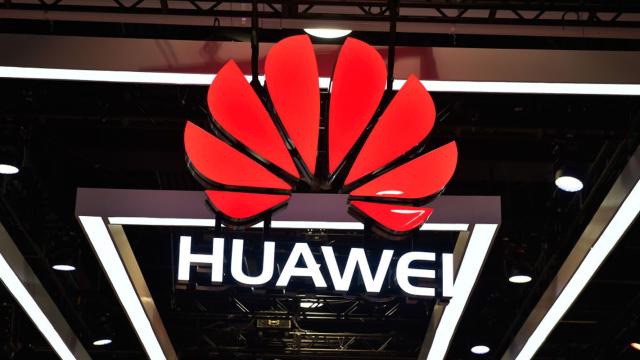Google has confirmed that Huawei’s upcoming flagship phone, the Mate 30 pro, won’t have access to its apps or the Play Store.
This news comes just over a week after the Chinese manufacturer was granted a further 90 days to trade with U.S. companies before being banned.
[referenced url=”https://gizmodo.com.au/2019/08/huawei-mate-30-will-have-android-thanks-to-temporary-licence/” thumb=”https://gizmodo.com.au/wp-content/uploads/2019/03/huawei-wall-410×231.jpg” title=”Huawei Mate 30 Will Have Android Thanks To Temporary Licence” excerpt=”The U.S. Commerce Department of Commerce has confirmed that Huawei will be given an extra 90 days before being added to its Commerce Entity List. This will allow the company to continue trading with U.S. companies in order to service and finish up work with current customers. It also means that the Mate 30 series will launch with Android.”]
Speaking with Reuters, a Google spokesperson has said that the Mate 30 won’t be able to have access to Google apps or services. This is due to an executive order from May that prevents U.S. companies from trading with foreign companies that are deemed to be a national security risk.
Huawei was granted a temporary 90-day license so it could continue to service and finish work with current customers, which was extended to November 20.
68 of Huawei’s subsidiaries was placed on the Commerce Entity List in May, with a further 46 being added last week.
The temporary license only applies to current products, and while many (including us) thought that perhaps that would leave the Mate 30 in the clear for an unimpeded release in September thanks to the temporary license. But that doesn’t appear to be the case.
While U.S. companies can apply for licenses for products to be exempt from the ban, it’s not looking good for Huawei at the present time.
President Trump announced the possibility of easing the restrictions at the Group 20 Summit in July, but there has been no further word or clarification regarding whether that will happen. However, the U.S. government has stated that trade licenses will be granted on an individual basis if “there is no threat to U.S. national security.”
According to Reuters Google would not divulge whether it has applied for a license for the Mate 30, however the company has said in the past that it would like to continue working with Huawei.
Furthermore, while over 130 licenses have been applied for in regards to servicing Huawei, the U.S. Commerce Department is yet to grant any.
This ban most likely means that the Mate 30 won’t have access to any U.S. based apps. This means that the likes of Facebook, Instagram and Twitter will be missing.
It also brings into question whether the full version of Android will actually be available on the device or only what is available through an open-source license. It’s also unclear whether the company will need to run the device on its recently revealed Harmony OS instead.
Suffice to say, this puts sales of the the Mate 30 series in jeopardy in Australia. Considering the importance that Western consumers place on the Google ecosystem, not to mention the myriad of other U.S. apps, it’s unlikely that many will want to buy a device that can’t host them.
While it may be possible to side load some apps, this is beyond what most customers would be willing to do for a phone.
Gizmodo Australia reached out to Huawei locally but the company doesn’t have comment at the present time.
[Reuters]
[referenced url=”https://gizmodo.com.au/2019/07/now-we-know-what-the-hell-is-going-on-with-huawei-sort-of/” thumb=”https://i.kinja-img.com/gawker-media/image/upload/t_ku-large/dtej7pmy9sb225rdexl4.jpg” title=”Now We Know What The Hell Is Going On With Huawei, Sort Of” excerpt=”It’s been a rough few months for Huawei, but as of now, it looks like there might be some relief for the Chinese tech giant at the centre of recent U.S.”China trade tensions. In a speech in Washington, DC, on Wednesday, U.S. Commerce Secretary Wilbur Ross clarified that while Huawei will remain on the Entity List, his department will issue trade licenses for companies provided “there is no threat to U.S. national security.””]
